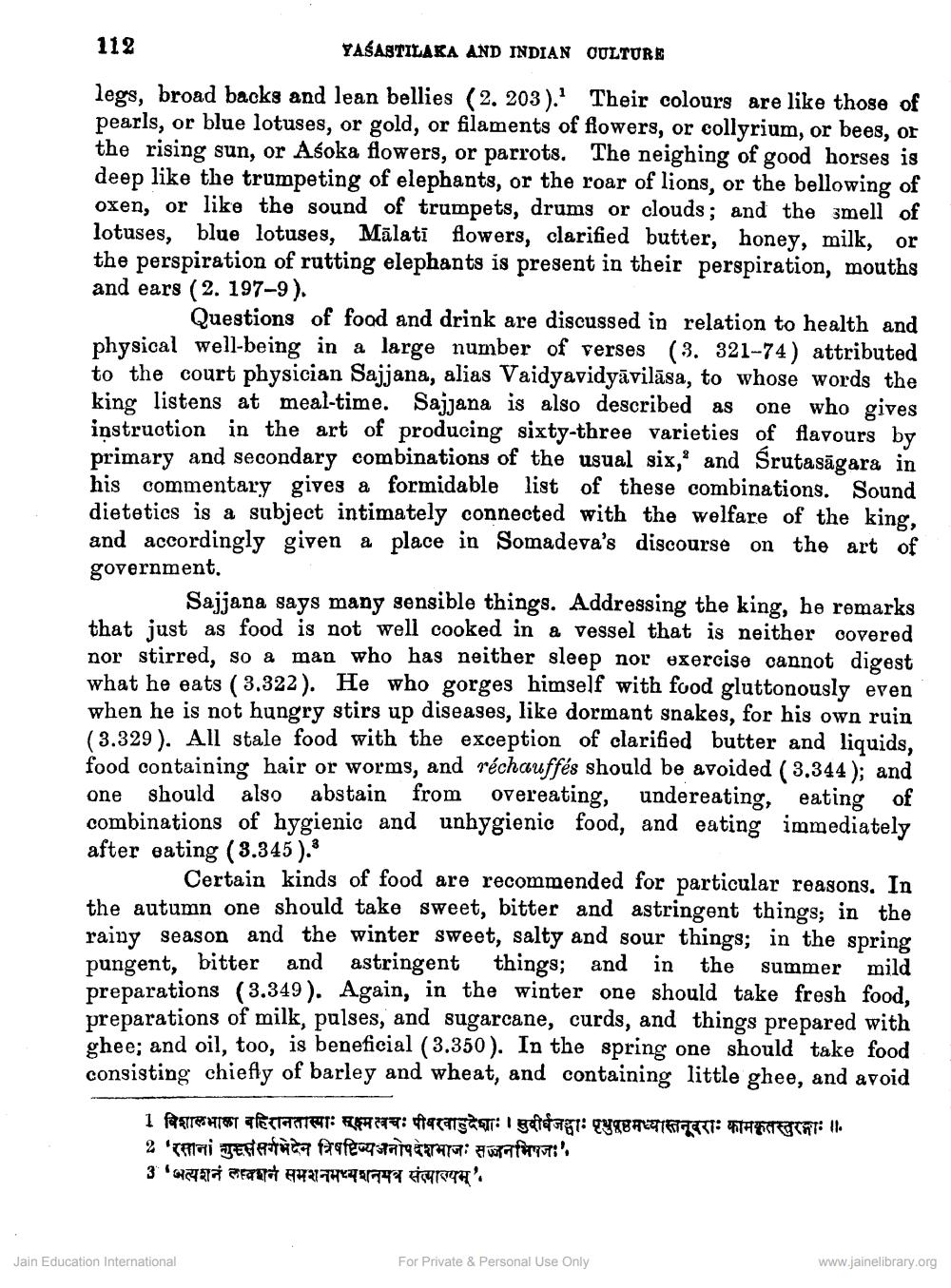________________
112
YAŠASTILAKA AND INDIAN CULTURE
legs, broad backs and lean bellies (2. 203).' Their colours are like those of pearls, or blue lotuses, or gold, or filaments of flowers, or collyrium, or bees, or the rising sun, or Asoka flowers, or parrots. The neighing of good horses is deep like the trumpeting of elephants, or the roar of lions, or the bellowing of oxen, or like the sound of trumpets, drums or clouds; and the smell of lotuses, blue lotuses, Mālati flowers, clarified butter, honey, milk, or the perspiration of rutting elephants is present in their perspiration, mouths and ears (2. 197–9).
Questions of food and drink are discussed in relation to health and physical well-being in a large number of verses (3. 321-74) attributed to the court physician Sajjana, alias Vaidyavidyāvilāsa, to whose words the king listens at meal-time. Sajjana is also described as one who gives instruction in the art of producing sixty-three varieties of flavours by primary and secondary combinations of the usual six, and Srutasägara in his commentary gives a formidable list of these combinations. Sound dietetics is a subject intimately connected with the welfare of the king, and accordingly given a place in Somadeva's discourse on the art of government.
Sajjana says many sensible things. Addressing the king, he remarks that just as food is not well cooked in a vessel that is neither covered nor stirred, so a man who has neither sleep nor exercise cannot digest what he eats (3.322). He who gorges himself with food gluttonously even when he is not hungry stirs up diseases, like dormant snakes, for his own ruin (3.329). All stale food with the exception of clarified butter and liquids, food containing hair or worms, and réchauffés should be avoided (3.344); and one should also abstain from overeating, undereating, eating of combinations of hygienic and unhygienic food, and eating immediately after eating (3.345).
Certain kinds of food are recommended for particular reasons. In the autumn one should take sweet, bitter and astringent things; in the rainy season and the winter sweet, salty and sour things; in the spring pungent. bitter and astringent things; and in the summer mild preparations (3.349). Again, in the winter one should take fresh food. preparations of milk, pulses, and sugarcane, curds, and things prepared with ghee; and oil, too, is beneficial (3.350). In the spring one should take food consisting chiefly of barley and wheat, and containing little ghee, and avoid
1 farena TRETTET: 27: TagaST: I gotat: TYTEATTEIGTET: PHOTFT: . 2 mai prestatuta frafegant TAS: wafi', 3 saad teata 47274275249 '.
Jain Education International
For Private & Personal Use Only
www.jainelibrary.org




